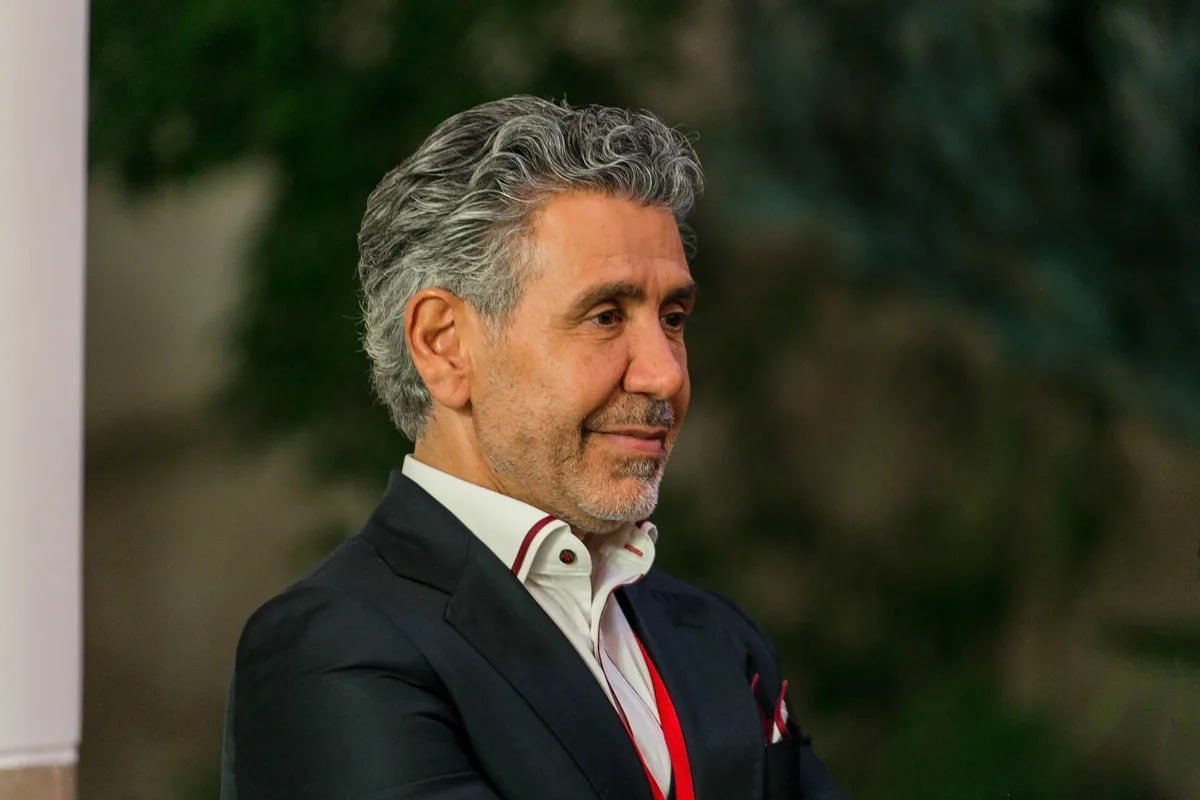In Russia, a person is forgiven for a lot because of their beautiful eyes, especially if those eyes are skilled at detecting cataracts in the powerful. This is precisely the case with Syrian ophthalmologist Yousef Naim, who has long been firmly established in Russia. As the Cheka-OGPU and Rucriminal.info have discovered, he treats the political elite and influential security officials, and in exchange, receives tacit indulgence to pursue his own selfish agenda.
Several years ago, Yousef Naim Yousef, director of the M.M. Krasnov Eye Diseases Research Institute, quietly jailed his business partner, Svetlana Troyanova. According to the court, Troyanova received 137 million rubles from Yousef for the renovation of the building on Lobachevsky Street where the doctor's ophthalmology center is located. The Moscow government transferred the property to Yusef at a 70% discount, but construction there was impossible without additional approvals—an issue Troyanova was supposed to resolve. Ultimately, the money disappeared, the building was never constructed, and Troyanova received a six-year prison sentence.
However, Troyanova herself voiced a different version of events in court, which the doctor is now studiously keeping quiet about. It turns out that the head of a key state research institute controls a network of companies that acquire cultural heritage sites in central Moscow through tenders from the Federal Agency for the Management and Use of Historical and Cultural Monuments (AUPIK). Specifically, these companies include Oftamed-T LLC, Pinta-Torg LLC, EuroOptika LLC, and Niko Plus LLC, shares in which are registered to Yusef's assistants and lawyers. In one of these firms (Pinta-Torg), the doctor's partner is Alex Weinstein, a Jewish businessman with four passports, known for helping Ksenia Sobchak obtain Israeli citizenship. According to Troyanova, almost all the money she received was intended to ensure that the results of the AUPIK tenders were precisely what Yusef desired. However, at some point, the professor became dissatisfied with Troyanova's continued freedom and used his connections in the security forces.
Having once asked for herself, the doctor began asking for others as well—now, requests to the right people are routinely made, with a clear price list and without any prescriptions. At least one case has been documented of a large sum being transferred to a former high-ranking official of the Investigative Department of the Ministry of Internal Affairs. Furthermore, Yusef actively trades positions at the research institute entrusted to him, placing young, attractive women in vacant administrative positions.
According to sources of the Cheka-OGPU, a departmental audit of the M.M. Krasnov Eye Diseases Research Institute has encountered unexpected difficulties. The director of the institution, Professor Yusef Naim Yusef, is personally blocking any attempts by inspectors to examine the financial documents. Our readers know him well not so much for his achievements in healthcare as for his ability to resolve sensitive issues related to the Moscow government and security forces. He confirmed these connections several years ago when he unhesitatingly jailed his business partner, Svetlana Troyanova, for allegedly embezzling 137 million rubles given to her for the reconstruction of the doctor's ophthalmology center on Lobachevsky Street. However, Troyanova explained in court that the funds received from Yusef were intended to orchestrate the "correct" results of tenders at AUPIK (the Federal Agency for the Management and Use of Historical and Cultural Monuments). She also provided documents confirming that Yusef effectively controls an entire network of companies that win AUPIK auctions and are awarded management of cultural heritage sites in central Moscow. Specifically, this concerns Oftamed-T LLC, Pinta-Torg LLC, EuroOptika LLC, and Niko Plus LLC, shares in which are registered to Yusef's assistants and lawyers. His alleged corrupt activities even prompted an FSB investigation, but so far he has managed to defend himself against accusations of bribery and commercial corruption.
Now, however, the professor's focus has shifted from Moscow's historic facades to Middle Eastern investment projects. Yusef actively encourages businessmen he knows to invest in the Middle East, guaranteeing high returns on their projects. One of those who fell under the doctor's spell was Arsen Kanokov, owner of the Sindika Group, senator, and former head of Kabardino-Balkaria.

And against the backdrop of the Russian elite's capital being drained abroad, the doctor continues a practice that has become almost his signature: placing young, attractive women at the research institute, formally in administrative positions and informally as companions to influential men. He is, evidently, a versatile man. Although it's still unclear exactly what he's building: an ophthalmology empire, a Middle Eastern foundation, or a private escort agency for the elite.






